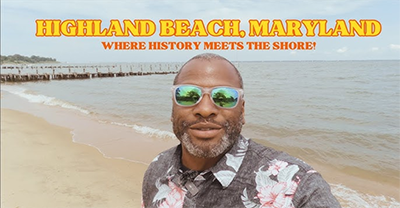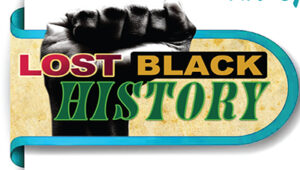By Don Valentine
Frederick Douglass’s son, Major Charles Redmond Douglas, was long on intellect, but short on temper. He was a retired officer formerly with the 54th Massachusetts Colored Infantry. That was the first Black regiment established during the Civil War. He and his wife were refused service at a restaurant along the Chesapeake Bay. The disgusting reason was that they do not service colored people. That was paradoxical, because Massassuchetes fought on the Union side.
After the incident, Black Past.org wrote, “Charles purchased acres of farmland from Daniel Brashears, a free Black farmer.” The point to his new White neighbors was that you don’t have to let me in the game, I can buy and sell the game! Black Past.org recorded “…Major Douglass entered the real estate business and began purchasing beachfront property directly south of Bay Ridge.” He acquired slightly more than 40 acres of beachfront land for $5,000. In today’s exchange, according to Measuring Worth, “$5000 in 1890 has a relative price worth of $157,349.48 today using the GDP Deflator.”
The Capital Gazette wrote, “Charles Douglass’ inkling in the 1890s that wealthier Black intellectuals might travel a great distance to recline by the bay, swim, catch crabs and spend carefree hours with family and friends proved correct. Peace and tranquility for Black Americans was hard to come by as their white counterparts held tightly to the vestiges of racism a post slavery-world still allowed.” ‘While modern-day waterfront property is some of the most highly prized in real estate, wealthy people weren’t scrambling to purchase these lands in the late 19th century,’ said Vince Leggett, founder and president of Blacks of the Chesapeake Foundation, a nonprofit that documents and preserves the history of Black people who lived and worked on the Chesapeake Bay.“ Historically Black and Brown people lived on the Chesapeake Bay, on the water’s edge and a big reason was low bottomland, high reeds, high mosquitos, and more-resourced people took the high ground,” Leggett said.
Major Douglass saw potential for the area to become a resort town for Black people on the East Coast. looking for a beach respite during the summer. This area became the swank summer play-place for Black luminaries like: poet Paul Laurence Dunbar; civil rights activist Mary Church Terrell; Dr. Charles Drew, a surgeon and a pioneer in the field of blood transfusions; Booker T. Washington, author, orator; W.E.B. Du Bois, sociologist, historian; Langston Hughes, social activist, novelist; E. Franklin Frazier, sociologist and author Alex Haley. To learn more read, Highland Beach on the Chesapeake Bay: Maryland’s First African American Incorporated Town, by Jack E. Nelson.

